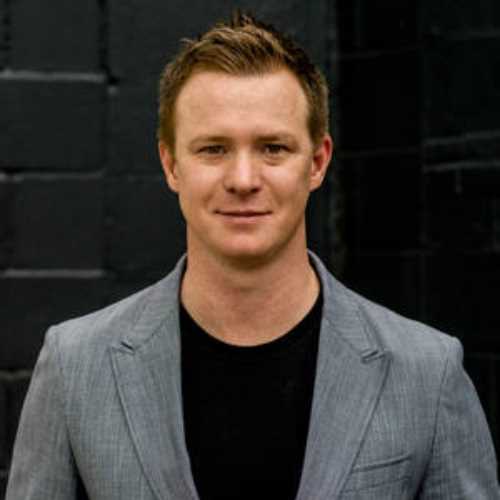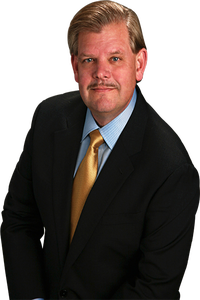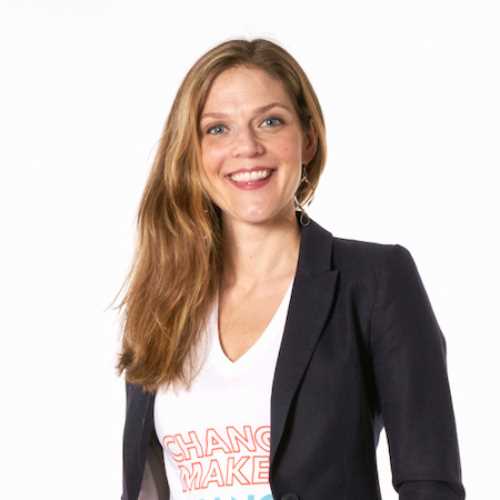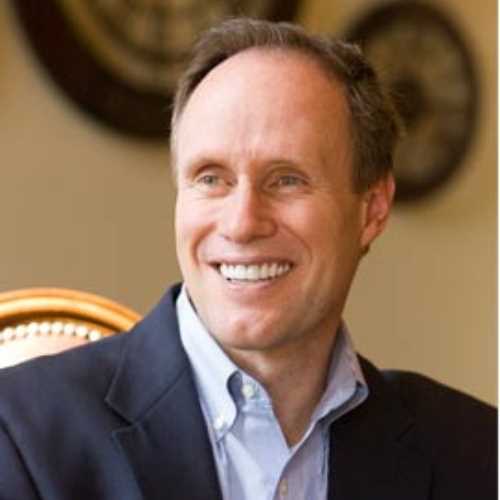
Rita McGrath Speaker Biography
Rita Gunther McGrath, a Professor at Columbia Business School, is regarded as one of the world’s top experts on strategy and innovation with particular emphasis on developing sound strategy in uncertain and volatile environments. Her ideas are widely used by leading organizations throughout the world, who describe her thinking as sometimes provocative, but unfailingly stimulating. She fosters a fresh approach to strategy amongst those with whom she works. Thinkers50 presented Rita with the #1 award for Strategy, the Distinguished Achievement Award, in 2013. Rita is in their top ten global list of management thinkers overall. She has also been inducted into the Strategic Management Society “Fellows” in recognition of her impact on the field.
Rita maintains an active social media presence, and has been rated one of the 25 smartest women to follow on Twitter by Fast Company Magazine. She consistently appears in rankings of the top business school professors to follow on that medium: Professors on Twitter. She authors a regular column, “The Entrepreneurial Strategist” for Inc Magazine and blogs regularly at HBR.org. Rita is also one of the Wall Street Journal’s Experts.
Rita’s new, best-selling book, is titled The End of Competitive Advantage: How to Keep Your Strategy Moving as Fast as Your Business, which was recognized by Strategy+Business as the #1 business book of the year. Rita has co-authored three previous books: Discovery Driven Growth: A Breakthrough Process to Reduce Risk and Seize Opportunity (2009); MarketBusters: 40 Strategic Moves that Drive Exceptional Business Growth (2005); and The Entrepreneurial Mindset (2000), all published by Harvard Business Review Press. MarketBusters has been translated into ten languages and was named one of the best business books of 2005 by Strategy+Business.
Rita is one of the most widely published authors in the Harvard Business Review, including the best-selling “Discovery Driven Planning” (1995), which was recognized as an early articulation of today’s “lean” startup philosophy and has been praised by Clayton Christensen as one of the most important ideas in management - ever. She is a highly-respected academic researcher whose work has won awards from the most prestigious management journals.
Rita joined the faculty of Columbia Business School in 1993. Prior to life in academia, she was an IT director, worked in the political arena, and founded two startups. She received her Ph.D. from the Wharton School, University of Pennsylvania and has degrees with honors from Barnard College and the Columbia School of International and Public Affairs. She is married and is proud to be the mother of two delightful grownups.
End of Competitive Advantage
For years, the ultimate goal of the strategy was presumed to be a ‘sustainable’ competitive advantage. Strategy when advantages are not sustainable, however, can be just as powerful. It does require completely different approaches to budgeting, resources, and talent management, as well as an increased emphasis on creating a pipeline of innovations. This talk describes some of the counter-intuitive aspects of dynamic strategies, for example, that it may make sense to sub-optimize some processes in the interests of preserving flexibility.
Business Model Competition
Traditionally, people have thought of competition between firms within an industry. Increasingly, we are learning that the most significant competition can arise from companies from different industries or with different business models, as industries blur and competitive advantages shift. In this talk, the business model concept is described, the tell-tale signs of business model erosion are identified and ideas for discovering your next business model are discussed. This can be extremely hands-on, with a workshop component if that is desired, and include a diagnostic for the robustness of a business model. This talk was featured in a Harvard Business Review article published in January of 2011.
Discovery Driven Planning
Discovery Driven Planning is a planning and learning process that helps executives systematically convert assumptions to knowledge so that they can access significant opportunities while containing risk. The core premise of the method is that when there isn’t enough information to develop a conventional business plan, the thrust of planning must instead be on learning, while at the same time reducing cost and risk. Conventional planning tends to lock an organization in, too early, to a specific operational trajectory. Discovery driven planning comprises five interdependent practices: 1) define success and drive the plan from this definition; 2) benchmark against key external variables; 3) think through operational specifications; 4) document assumptions and 5) re-assess assumptions and goals at key checkpoints. It imposes strict discipline on new projects, but discipline that is appropriate to their uncertain nature.
Opportunity Portfolio
While it should be obvious that companies need to use different practices for new ventures that are highly uncertain than they do for their established businesses, all too often this is not what happens in practice. Further, growth strategies often flounder because an organization lacks an effective process for creating a solid growth portfolio. What you want instead is the right mix of initiatives to support the core business, create opportunities in adjacent spaces and invest in options for the future. It’s essential to figure out how to best align your growth strategy with the projects and people necessary to make it happen. This session helps participants understand their existing portfolio of projects within a given portion of the company and discuss processes to bring portfolio elements into better alignment. The financial logic that makes sense for each component of the portfolio will also be addressed.
The Entrepreneurial Mindset
Three critical leadership roles are needed in any company that seeks to develop an organic growth program. The first is the framing and establishing the commitment to growth at the most senior level – if this isn’t done correctly, the organization simply churns in trying to find its way. The second is the internal entrepreneurs who manage specific ventures. And most importantly, and almost invisibly, is the difficult job of the manager in the middle, who has to navigate the political and resource dilemmas of fitting together the growth mandate with individual business opportunities. For this session, real examples of companies who do this well (such as Procter and Gamble and United Parcel Service) are contrasted with companies who have struggled (such as Sony and Motorola).
Making the Most of Intelligent Failures
Most of us suffer from a pervasive anti-failure bias, in which things that go wrong instantly become undiscussable and the potential benefits of failure are lost. Here’s the problem: in fundamentally unpredictable environments, failure is unavoidable. Moreover, it is essential if your organization is to take the risks and engage in innovations crucial to effective competition. Failures are critical to competitive advantages because they facilitate trying more; attract resources and attention; help you learn what doesn’t work; create leadership variety, and help you build skill and intuition. To gain these benefits, follow six principles: 1) Plan to convert assumptions to knowledge; 2) be quick about it; 3) contain the downside risk; 4) uncertainty is genuine, but not overwhelming; 5) intelligent failures are celebrated, and 6) Learning is codified and transferred.
Anticipating Industry Shifts
Industries go through different types of changes that can, to some extent be anticipated. Step changes are sudden and irreversible. Cyclical changes are those that appear and then reverse themselves. Trends are slower but significant. Value chain shifts result in changing power relationships among buyers and suppliers in an industry. This workshop will ask participants to identify key shifts that they can foresee in their industries, and then to consider one of three possible responses: anticipating and preparing for the change; benefitting from second-order effects or even provoking a change themselves.
Change and Dealing with Resistance
If change is the only constant in business life, why do companies still struggle so hard to cope with it? One reason is that there are not many clear, agreed-upon ways to constructively motivate change, inspire those affected and break through the obstacles that stand in the way of moving forward. In this talk, McGrath walks through an approach to dealing with change that addresses these issues and takes on the substantive and symbolic challenges of dealing with resistance. The workshop can be accompanied by a diagnostic tool which change leaders can use to determine where they can usefully place their emphasis.


























